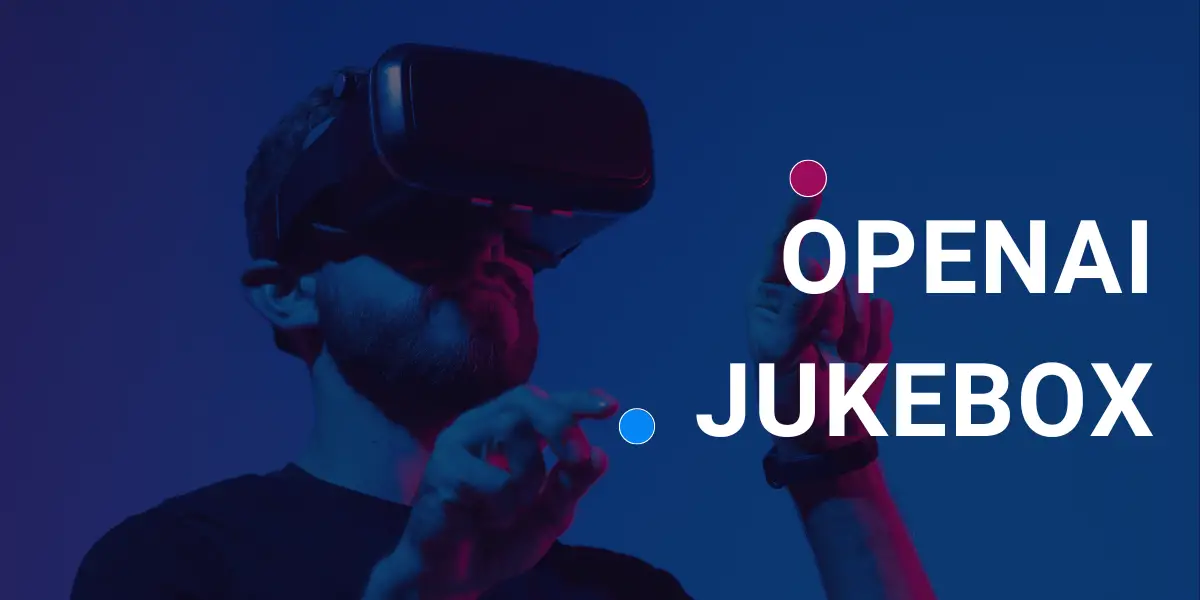What is OpenAI Jukebox:Change The Music Industry?

In the ever-evolving world of technology, the music industry has witnessed a plethora of innovations. From vinyl records to streaming platforms, the way we consume music has transformed dramatically. Now, with the advent of artificial intelligence, we are on the brink of another revolution. Enter OpenAI’s Jukebox, a groundbreaking AI that promises to redefine the boundaries of music creation.
Table of Contents
What is OpenAI Jukebox?
OpenAI Jukebox is a state-of-the-art AI model capable of generating music. Unlike traditional music production tools that rely on pre-existing samples or MIDI data, Jukebox crafts music from scratch. Designed to emulate various styles and even mimic specific artists’ voices, its goal is to empower anyone to produce professional-grade songs without any prior musical knowledge.
Features and Benefits
- Versatility: Can generate music across diverse genres and styles.
- Voice Imitation: Capable of replicating the voice of specific artists.
- Raw Audio Generation: Produces music in its raw audio form, offering a more organic feel.
- Large Training Dataset: Trained on a vast dataset, ensuring a wide range of musical outputs.
- Integration with Other OpenAI Models: From the creators of Dall-E and ChatGPT, ensuring top-notch AI quality.
How to get start?
Step 1: Visit OpenAI’s official website to access the Jukebox model.
Step 2: Provide the AI with specific parameters like genre, artist, or lyrics.
Step 3: Let Jukebox process the information and generate music based on the provided input.
Step 4: Review the generated music, make any desired tweaks, and finalize your track.
The Applications of OpenAI Jukebox
- Music Production: Artists can use Jukebox to craft unique tracks.
- Film Scoring: Filmmakers can generate custom background scores for their projects.
- Advertisement Jingles: Brands can create catchy jingles tailored to their campaigns.
- Personalized Playlists: Users can generate playlists based on their mood or preferences.
- Music Education: Educators can use Jukebox to teach music composition and theory.
Pricing of OpenAI Jukebox
As of now, OpenAI has not released a commercial version of Jukebox, making its pricing details unavailable. However, enthusiasts can access the model for free on OpenAI’s official website, albeit with certain limitations.
Pros &Cons of OpenAI Jukebox
Pros:
- Offers a novel approach to music generation.
- Can produce a wide variety of music styles.
- Reduces the barriers to music production, making it accessible to all.
Cons:
- Generated music might lack the emotional depth of human-composed tracks.
- The current version requires significant computational resources.
- Potential for generating music that sounds too formulaic or predictable.
Principle of OpenAI Jukebox
Jukebox operates on a neural network trained on a vast dataset of songs. It understands the relationships between musical notes in the dataset, allowing it to create new melodies and chord progressions reminiscent of the originals. This ensures that while the music is AI-generated, it retains a touch of familiarity.
See more:How to Use OpenAI API Reverse Proxy Free:Step-by-step Guide
Alternatives of OpenAI Jukebox
- Amper Music: An AI music creation tool that assists users in composing and producing music tracks.
- Features: Offers a user-friendly interface, vast sound library, and quick generation.
- Difference: Unlike Jukebox, Amper relies more on pre-existing samples.
- AIVA: An AI that composes emotional soundtrack music.
- Features: Specializes in classical music compositions suitable for films and games.
- Difference: AIVA focuses primarily on classical genres, whereas Jukebox has a broader range.
- DistroKid’s Hypergrowth: Allows users to generate and upload music on streaming platforms.
- Features: Streamlines the music distribution process, offering insights and analytics.
- Difference: DistroKid emphasizes distribution, while Jukebox is all about creation.
What It Means for the Music Industry?
OpenAI Jukebox has the potential to revolutionize the music industry. By simplifying the music creation process, it can democratize access, allowing more artists to produce and share their work. However, there’s also a risk of oversaturation, with AI-generated tracks flooding the market. Moreover, while Jukebox can mimic styles and voices, the emotional nuance and depth that human artists bring to their compositions might remain unmatched.Also read:chatgpt reverse proxy: guide to getting free OpenAI API key access
Conclusion
OpenAI Jukebox stands as a testament to the incredible strides AI has made in the realm of creative arts. While it offers exciting possibilities, it also brings forth challenges and ethical considerations. As with any technological advancement, it’s crucial to strike a balance, ensuring that while we embrace the new, we also preserve the essence of human creativity in music.

